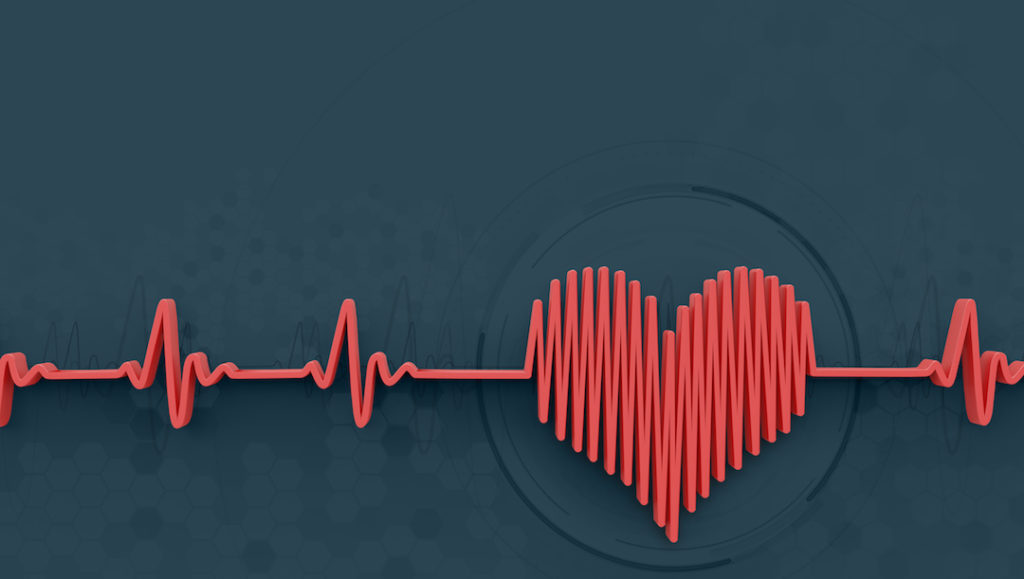Heart palpitations are a common experience—many people describe them as feeling like their heart is fluttering, skipping a beat, or pounding unusually fast. While palpitations are often harmless and temporary, they can sometimes be a sign of an underlying heart condition.
Understanding the causes, symptoms, and warning signs can help you determine when it’s okay to relax and when it’s important to seek medical attention.
What Are Heart Palpitations?
Heart palpitations are sensations of irregular or strong heartbeats. You may feel your heart:
- Beating too fast (tachycardia)
- Beating too slowly (bradycardia)
- Skipping beats
- Fluttering or pounding in your chest, throat, or neck
They may last for a few seconds or minutes and occur during rest, physical activity, or even while sleeping.
Common Causes of Heart Palpitations
In many cases, palpitations are triggered by everyday activities or conditions that aren’t dangerous. These include:
- Stress or anxiety: Emotional distress or panic attacks can cause adrenaline surges.
- Caffeine or nicotine: Found in coffee, tea, energy drinks, and tobacco.
- Physical exertion: Overexertion during exercise or sports.
- Dehydration: Low fluid levels affect blood pressure and heart function.
- Hormonal changes: Menstruation, pregnancy, or menopause may cause temporary changes.
- Fever or illness: Infection or fever increases heart rate.
- Low blood sugar: Skipping meals can affect heart rhythm.
- Certain medications: Including asthma inhalers, decongestants, or thyroid pills.
These palpitations are usually short-lived and resolve once the trigger is removed.
When Are Heart Palpitations Harmless?
Palpitations are generally considered harmless when:
- They happen occasionally and last only a few seconds
- They are not accompanied by other symptoms like dizziness or pain
- You can link them to a specific cause (like caffeine or stress)
- They stop when you rest or relax
For many people, lifestyle changes such as reducing caffeine, managing stress, and staying hydrated can eliminate benign palpitations.
When Should You Be Concerned?
Sometimes, palpitations can signal a serious medical issue. Seek medical attention if you experience palpitations along with:
- Chest pain or discomfort
- Shortness of breath
- Fainting or dizziness
- Persistent or frequent episodes
- A rapid or irregular pulse that doesn’t go away
These symptoms could be signs of:
- Arrhythmias: Abnormal heart rhythms such as atrial fibrillation (AFib) or supraventricular tachycardia (SVT)
- Heart valve problems
- Coronary artery disease
- Heart failure
- Thyroid disorders (especially hyperthyroidism)
Diagnostic Tests for Palpitations
If your doctor suspects a cardiac cause, they may perform several tests:
| Test | Purpose |
|---|---|
| Electrocardiogram (ECG) | Records heart’s electrical activity |
| Holter Monitor | Worn for 24–48 hours to track rhythm |
| Echocardiogram | Checks heart structure and function |
| Stress Test | Assesses how your heart works during exercise |
| Blood Tests | Detects thyroid issues, anemia, or electrolyte imbalance |
These tests help rule out or confirm underlying heart diseases.
How to Manage Benign Palpitations Naturally
If your palpitations are occasional and not linked to a heart condition, try these natural remedies:
- Reduce caffeine and alcohol intake
- Quit smoking
- Manage stress through deep breathing, yoga, or meditation
- Stay hydrated
- Get enough sleep
- Eat balanced meals to avoid blood sugar fluctuations
Medical Treatments (If Needed)
If your palpitations are caused by an arrhythmia or another condition, your doctor may recommend:
- Medications: Beta-blockers, calcium channel blockers, or antiarrhythmics
- Ablation therapy: Destroys small areas of heart tissue causing irregular rhythms
- Pacemaker or defibrillator: For severe or life-threatening rhythm problems
Treatment depends on the underlying diagnosis and individual health factors.
Conclusion
Heart palpitations can be unsettling, but in many cases, they are harmless and temporary. Recognizing the difference between benign palpitations and those that signal a deeper issue is essential. If you experience palpitations often or with troubling symptoms, don’t ignore them—early diagnosis can prevent complications and offer peace of mind. Most importantly, maintaining a healthy lifestyle is your best defense for keeping your heart rhythm steady.
FAQs
1. Can anxiety really cause heart palpitations?
Yes, anxiety and stress are among the most common causes of harmless heart palpitations due to adrenaline release.
2. Are heart palpitations dangerous during pregnancy?
Mild palpitations during pregnancy are common due to hormonal and blood volume changes, but should be evaluated if frequent or intense.
3. Should I go to the ER for heart palpitations?
Yes, if palpitations are accompanied by chest pain, fainting, or shortness of breath, seek emergency medical care immediately.
4. Can dehydration cause irregular heartbeat?
Yes, low fluid levels can affect electrolyte balance, leading to palpitations or an abnormal heart rhythm.
5. How long should palpitations last before I get concerned?
If they last more than a few minutes or become more frequent and severe, consult a doctor for evaluation.
